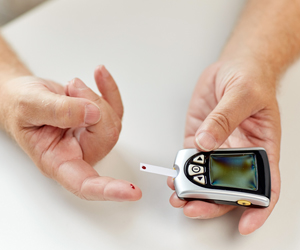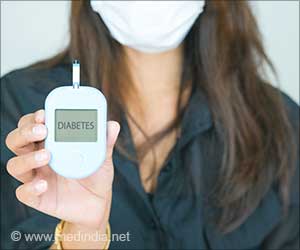Maria Petelo, aged 45 lies in her hospital bed in ward 3 of Middlemore Hospital, South Auckland, unable to believe what the doctors had told her. Except for a constant feeling of thirst, a craving for sweet drinks, frequent visits to the bathroom and bouts of dizziness she had been fine. She was surprised to be rushed to the hospital, following a visit to her GP. The blood tests revealed that her blood sugar levels had reached an alarmingly high level, putting her at increased risk of dehydration, confusion and coma. Nearly 20-50% of patients who experience this condition die. Maria was lucky to have been admitted into a hospital to restore her blood glucose levels to normal. She was diagnosed with type-2 diabetes, a disease that had threatened her life before she knew she had it.
Diabetes also referred to, as the silent killer may lie dormant for several years before it can be detected. Most people, once diagnosed with the disease, fail to take it seriously or rather tend to ignore the impact of the diabetes epidemic that has just started to gather momentum. This deceptively benign disease triggers the onset of other serious conditions such as stroke, blindness, kidney failure, heart disease, pneumonia, and tooth abscess. It is the important causes of disability, necessitating the amputation of toes, feet and lower limbs.The hospitals in Hawke's Bay are overloaded with diabetics and medical personnel find it hard to meet the demand for medical service. In addition, thousands are being turned away from waiting lists. With this being the scenario in New Zealand, it might not be long before diabetics flood hospitals, leaving in very little resources for other major diseases.
'It's already here. We're already gasping for breath but if it's hard now it's going to get a lot harder,' says Dr Brandon Orr-Walker, clinical head of the Middlemore Hospital, in response to the looming type-2 diabetes epidemic. Nearly 250, 000 New Zealanders are believed to be afflicted with the deadly disease, and more than 300, 000 are thought to have pre-diabetes. The irony is that nearly 50% of those suffering from diabetes do not even know that they have the disease.
Obesity is an important risk factor for diabetes. Men above the age of 45 or women above 55 years of age are more likely to develop diabetes. Maori and Pacific Islanders are at particularly increased risk, as they tend to develop the condition 10 years earlier than their counterparts.
A combination of genetic and environmental factors can be blamed for causing type-2 diabetes. The increase in proportion of the aging population, the variation in the ethnic constitution of the country and increase in obesity are responsible for this alarmingly high incidence of type-2 diabetes in New Zealand. With 1 in 5 New Zealanders being obese, this number is only expected to increase in the forth-coming years.
In New Zealand alone, more than 70 people lose their eyesight and another 500 have their limbs amputated owing to diabetic complications. The key to effective management of diabetes is therefore early diagnosis/detection and maintenance of blood sugar level at an optimal level to prevent damage to other organs. Despite widespread research, there is no guaranteed cure for the disease. Exercise, diet, tablet and insulin therefore continue to be the gold standard.
'Patients with diabetes are more likely to have adverse events, more likely to get infections and to require more nursing care,' remarked Dr. David Simmons of the Waikato Hospital.
With novel blood sugar monitoring being invented everyday, and the sustained efforts of the pharmaceutical industry offering endless hope in the treatment and cure of diabetes, the take home message which is valid now and forever is: 'Do not to wait to be detected at the hospital'.









